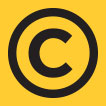Free and Open
Bibles Without Copyright Restrictions

A cry of dismay ran through the assembly. The pastors had just been informed that, due to licensing issues, the Bible they had used for over a decade was no longer permitted for use. “How can you take the Word of God from us?” they asked. “We urgently need it. Why is it being taken away?” But without further explanation, their access to the Bible was terminated.
This is a true story, and there are many more like it. From the beginning, the Bible was the common property of the Church. But today, in virtually every language where it is available, the Bible is not the common property of the Church and it is not freely available without restriction. The Church is under the rule of “gatekeepers” who mediate between the people of God and the Word of God. How did this happen?
How we got here
It started about 200 years ago, when the Church established Bible societies to provide bibles as rapidly as possible, at the lowest possible cost. Then in 1901, the ASV was copyrighted to prevent unauthorized publication. Copyrights on Bibles soon became the norm. Those who had been entrusted by the Church with distribution of the Bible now became its owners. Officially, this was for “stewardship” of the Word of God and copyrights “protected” the Bible. (Though being the exclusive distributor of a sought-after Bible translation did have its advantages.)
 Then the Digital Era dawned. What had been expensive (creating new copies of Bibles) was free for everyone. What had been difficult (distribution of Bibles) was so easy anyone could do it. Many organizations that made their living from managing the scarcity of the Print Era found the abundance of the Digital Era threatening. But, as the collective owners of the copyrights to virtually all existing Bible translations, the law was on their side. If the preservation of their institutions in the name of “protecting the Bible” required restricting the freedom of the Church, so be it.
Then the Digital Era dawned. What had been expensive (creating new copies of Bibles) was free for everyone. What had been difficult (distribution of Bibles) was so easy anyone could do it. Many organizations that made their living from managing the scarcity of the Print Era found the abundance of the Digital Era threatening. But, as the collective owners of the copyrights to virtually all existing Bible translations, the law was on their side. If the preservation of their institutions in the name of “protecting the Bible” required restricting the freedom of the Church, so be it.
Does the Bible need to be protected?
Disregarding, for a moment, the intrinsic theological implication that the Sovereign God who has preserved His Word for two millennia is now dependent on human institutions to preserve it, it is worth considering: From what does the Word of God need to be protected?
The fear usually pertains to corruption of the text. The assumption is that the ease with which a Bible can be intentionally corrupted requires use of restrictive “all rights reserved” licenses to prevent it. But consider the implication of the logic. If the Bible can only be protected by copyright, how is it that the KJV, ASV, and dozens of other bibles (as well as hymns like “Amazing Grace”) that are in the public domain where there is no copyright are uncorrupted?
Derivative translations have been made that mock them (e.g., the LOLcat Bible) and intentionally distort them (e.g., the Queen James Bible). Yet the historical pattern holds: originals are fine, derivatives are judged on their own merit. Copyright is not the means by which Bibles that have no copyright are flawlessly preserved.
Regardless, the default licensing model of Bible owners today appears to permit good people to do good things, but prevents bad things from happening. On the surface, this sounds like a very good approach. There are, however, at least four significant shortcomings with it.
1. It Doesn’t Work
This approach reflects a fundamental misunderstanding of how copyright actually works. Copyright prevents nothing. All over the world people consistently violate “all rights reserved” licenses that “protect” copyrighted content including Bible translations. Copyright law merely provides the owner of the resource with a legal platform from which they can sue infringers in public courts.
2. It Hinders the Church
There is no evidence that people who are antagonistic toward the Bible are dissuaded from misusing it due to the presence of an “all rights reserved” license. Instead, copyright restrictions actually hinder the Church from using it.
3. It Reproduces the Errors that the Reformation Corrected
When God gave His Word to the Church, it was “free and open” and anyone who encountered it could do anything with it; they were accountable only to God for what they did (c.f. Revelation 22:18–19). Eventually, heretics who had access to the Bible began to teach corrupt doctrine. The leaders of the institutional Church responded by putting gatekeepers between the people and the Bible, to protect it. These ecclesiastical restrictions eventually prevented commoners from having access to the Word of God at all.
So when the Reformers came on the scene with their “heretical” belief in things like the priesthood of all believers (no segregated hierarchy), they were reviled, excommunicated, and sometimes martyred. But the Reformers’ crowning scandal was the translation of the Bible into the languages of the common people. This the elites simply could not allow.
“That pestilent and most wretched John Wycliffe, of damnable memory, a child of the old devil, and himself a child or pupil of Antichrist... crowned his wickedness by translating the Scriptures into the mother tongue.”
—Arundel, Archbishop of Canterbury[1]
Why all the angst? Because the elites believed God had granted the Bible to their safekeeping as its stewards. But now, because of Wycliffe, everyone could have unrestricted access to it, unprotected, and terrible things were sure to happen:
“Christ gave His Gospel to the clergy and the learned doctors of the Church... But this Master John Wycliffe… by thus translating the Bible, made it the property of the masses and common to all and more open to the laity… And so the pearl of the Gospel is thrown before swine and trodden underfoot...” —Henry Knighton, Chronicler of the Catholic Church.[2]
With the publication of Luther’s translation of the Bible into German, the Reformation ignited into an uncontainable blaze. The Church’s unrestricted freedom to access, use, and redistribute the Bible in their own language severely threatened the gatekeepers’ privileged position. So they sought to maintain it by decree:
“...if the Holy Bible… be indiscriminately allowed to everyone, the rashness of men will cause more evil than good to arise from it... bishops or inquisitors [may]… permit the reading of the Bible translated into the vulgar tongue… this permission must be had in writing… Regulars shall neither read nor purchase such Bibles without special license from their superiors.” —Pope Pius IV[3]
Note how similar this anti-Reformation papal edict is to licenses restricting use of Bibles today. Both contain the same key elements of the “gatekeeper” strategy:
- The fear that bad things will happen if the Word is not protected.
- The discrimination policy, where only those who are considered worthy are granted permission to handle the Bible.
- A gatekeeper in authority over the Church makes the decision.
- The permission must be had in the form of a written license.
Given the Reformers’ unanimous stance in favor of “free and open” access by all people to the Word of God in every language, one might wonder on what side of the same issue they would be today.
4. It is Disproven by History
We could expect to find in the pre-copyright era a chaotic mess of corrupted derivative translations purporting to be the original and confusing many, due to the absence of copyright. But we don’t. Instead of chaos, a notably different pattern emerges: the originals still exist with virtually perfect fidelity while the corrupted derivatives have all but vanished from the scene.
Why does it matter?
 At this point, you may be wondering: “So what? Why does it matter that the Bible is restricted by copyright? It may not be ideal, but what’s the worst that could happen?” Without overstating the case at all, the worst that can happen is what actually is happening all over the world today: the perpetuation of a total famine of God’s Word in thousands of people groups. This is true for people groups where a Bible has already been translated but is not freely accessible to the Church. It is also true for the thousands of living languages where the Church is restricted from using existing biblical content, tools, and training to engage in effective Bible translation in their own languages.
At this point, you may be wondering: “So what? Why does it matter that the Bible is restricted by copyright? It may not be ideal, but what’s the worst that could happen?” Without overstating the case at all, the worst that can happen is what actually is happening all over the world today: the perpetuation of a total famine of God’s Word in thousands of people groups. This is true for people groups where a Bible has already been translated but is not freely accessible to the Church. It is also true for the thousands of living languages where the Church is restricted from using existing biblical content, tools, and training to engage in effective Bible translation in their own languages.
Where the Church is going
A worldwide transition back to freedom is already occurring. The Church is starting to openly collaborate to provide the Bible without restrictions in every language. A new generation of unrestricted biblical resources, training, and tools is being created to fuel a Church-centric Bible translation movement in every language. This “free and open” movement has four key components:
- Unrestricted biblical resources— Bible texts, exegetical resources, lexicons, and checking questions that provide maximum comprehension of the text.
- Unrestricted translation training— Principles and best practices for effective and accurate Bible translation.
- Unrestricted translation tools—Open-source technology tools that provide everything from Bible translation on mobile phones to digital publishing platforms with output to web, multimedia, and print-on-demand (and anything else).
- The “Gateway Languages” strategy - These resources are being pushed out from English to the smallest subset of Languages of Wider Communication that cover 100% of all the languages in the world through bilingual speakers. In this way, the Church can access everything, whether their language has three speakers or 300 million.
Toward an unrestricted Church
Most of the men in the room had, up until recently, been bomb-makers, special operatives, and senior leaders of terrorist networks in the Middle East. Now, as disciples of Jesus, they had been appointed by their Church leaders to translate the Bible. Legacy resources were inaccessible to them, but now they were receiving everything necessary for effective Bible translation, at no cost, and without restriction. Smiles spread across their faces as they browsed the biblical content on their new tablet computers. “Thank you!” they exclaimed, “It is like you have given us the answers to the test. Everything we need to translate the Bible into our own language is right here.”
This true story is one of many like it in the “free and open” movement. Find out more at unfoldingWord.org.
Stories Like These Must Come to An End
“A Bible society in Southeast Asia does not consider there to be any financial value in printing more copies of the Bible in certain languages, so they do not, even though the Church is pleading
for more.”
“A Bible society in Africa is deliberately starving the Bible market to keep prices artificially high. So the Church pleads for the Bible but cannot afford it, while the warehouses of the institution are filled with the Bibles the Church needs.”
“A Central Asian Bible society has a warehouse full of a brand new Bible translation that they own. This translation is urgently needed by millions of speakers of that language, but the institution will not make it available, due to the style of the translation and the word choices used. The only way the Church can gain access to them is by the compassion of an unbelieving employee of the publisher who smuggles the Bibles out of the warehouse.”
“An almost completely illiterate people group in Africa has a translation of the New Testament, but a Bible society owns the copyright on the translation and refuses to allow the recording of audio Bibles for free, widespread sharing of the MP3s for the building up of the Church.”
“For more than 10 years a Bible society in Africa that owns the rights to a Bible has refused to print more copies. They cannot afford the print run and, even if they could, the Church would not be able to purchase all the copies. Instead of making the Bible available for lower-cost printing options (like print-on-demand), the Bible is simply not made available at all.”
“In Central Asia, a Bible society refuses to print any Bible that does not have traditional Christian artwork placed prominently on the cover. Even though such artwork places the Church in religiously antagonistic contexts at lethal risk, the institution owns the copyright and insists on their tradition, regardless of the danger to the Church.”
“For many years, a people group in Africa has had a huge demand for a second print run of the translation of the Bible in their language. The Bible society that owns the Bible in that language has not been able to pay for the minimum run but they have not permitted the use of lower-cost options like print-on-demand. Churches are now, once again, reading in the national language and doing on-the-fly oral translations, just as though the Bible had never been translated in the first place.”
[1] Cited in: “Why Wycliffe Translated the Bible Into English.” 2014. Christianity Today Library. Accessed August 13. http://www.ctlibrary.com/ch/1983/issue3/326.html
[2] Ibid
[3] Cited in: Schaff, Philip. 1910. Modern Christianity.The German Reformation. Second edition, revised.Vol.VII.VIII vols. History of the Christian Church. http://www.ccel.org/ccel/schaff/hcc7.html









comments